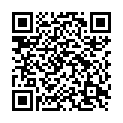| Nom d'élément:
Initiation au marketing
|
| Filière:
Management du Tourisme International, Bachelor, ASPO 01.10.2018 |
| Code: DFBTO212 |
| SAP-Submodule-No.: P620-0511 |
| Volume horaire: 12CM+12TD (24 heures) |
| Crédits: 1,5 |
| Semestre: 2 |
| Matière obligatoire: oui |
Langue de travail:
allemand |
Examens requis:
Contrôle continu |
Type d'examen:
[dernière modification 28.02.2017]
|
Localisation dans le cursus:
DFBBW-232 (P620-0051) Sciences de Gestion, Bachelor, ASPO 01.10.2013
, semester 2, matière obligatoire
DFBTO212 (P620-0511) Management du Tourisme International, Bachelor, ASPO 01.10.2018
, semester 2, matière obligatoire
DFBBW-232 (P620-0051) Management Franco-Allemand et International, Bachelor, ASPO 01.10.2018
, semester 2, matière obligatoire
|
Charge de travail:
|
Pré-requis:
Aucun.
|
Pré-requis pour:
|
Responsable:
Alina Simion |
Enseignant(e): Alina Simion
[dernière modification 16.01.2017]
|
Objectifs:
Objectifs :
The objective of the course is to provide an introduction to some key concepts of marketing and to explain its role as a key determinant in any modern business environment. The strategic dimension of marketing is only introduced, as well as decisions made by marketing managers (marketing mix).
The course is designed for students who have never studied marketing before, so it is important that the students are introduced to theoretical concepts in marketing, but marketing is also practice, and the objective is to have students learn it in a practical and interesting way.
Lectures, tutorials and case studies
The case study methodology and the concept of learning marketing theory by looking at examples of how it is practiced by companies in the real world, is reinforced during tutorials in small groups. Tutorials are conducted around the presentation of the analysis of a mini-case study, by students in groups, which further motivates them to learn the main theoretical concepts of marketing in a practical way.
Student projet
Students also have to prepare a marketing project according the “projet plan”, studying a company of their own choice and using all the analysis methods and tools taught during the class.
Contenu pédagogique :
Chapter 1: General introduction: what is marketing? (1 hour)
Lecture 1a Brief History of Marketing
Lecture 1b Consumer Needs, Wants and Marketing Management Orientations
Tutorial 1a 0.5 hours
Tutorial 1b 0.5 hours
Chapter 2: Consumer behavior (1.5 hour)
Lecture 2 Consumer Behaviour
Tutorial 2 1 hour
Chapter 3: Marketing research (1.5 hour)
Lecture 3 Marketing Research
Tutorial 3 1.5 hours
Chapter 4: Marketing management (1 hour)
Lecture 4 Marketing Management
Tutorial 4 1 hour
Chapter 5: Segmentation, targeting and positioning (2 hours)
Lecture 5 Segmentation and Positioning
Tutorial 5 1.5 hours
Chapter 6: The marketing mix (3 hours)
Lecture 6a Products and Services
Lecture 6b Advertising and Promotion
Lecture 6c Pricing and Place
Tutorial 6a 1 hour
Tutorial 6b 1 hour
Tutorial 6c 1 hour
Other lectures (2 hours)
Lecture 7 Online marketing
Tutorial 7 1.5 hours (final exam)
Tutorial 8 1.5 hours (project presentations)
Total : 12 CM + 12 TD
ASSESSMENT
Continuous assessment (Case Study) 20 %
Assignement (Group Marketing Project - 2000 Words) 30 %
Final Exam 50 %
[dernière modification 28.04.2016]
|
Contenu pédagogique:
[non documentée]
|
Supports pédagogiques:
Lectures with be conducted using powerpoint presentations. Students shall receive printed copies which they will need to fill out with their own notes during the lecture.
[dernière modification 28.04.2016]
|
Bibliographie:
Fr :
Caumont D., Les études de marché, Les Topos, 2002.
Darpy D., Volle P., Comportement du consommateur, Dunod, 2007.
An :
Solomon M.R., Comportement du consommateur, Pearson Education, 2005 – livre de référence.
Kotler Ph., Dubois B., Marketing Management, Publi-Union, 2000.
Rosalind Masterson and David Pickyon (2004) Marketing. An Introduction. McGraw Hill, Maidenhead, 444 pages, ISBN 0077098765
[dernière modification 28.04.2016]
|

